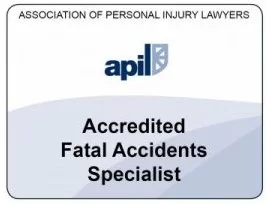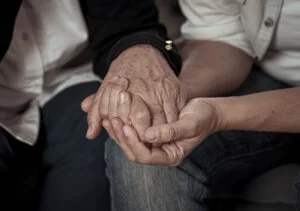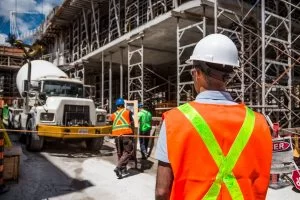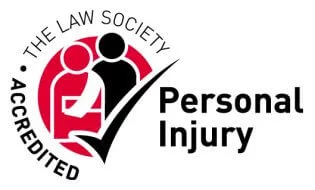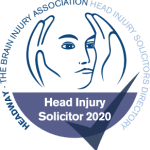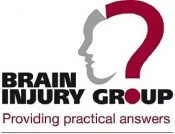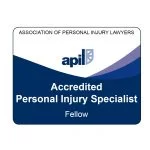Fatal Accident Claims
Fatal Accident Lawyers
Osbornes Law is proud to be home to 3 of only 10 APIL accredited specialist fatal accident solicitors in the UK. If you have lost a loved one in a fatal accident, we can help you seek justice and claim the compensation you deserve.
No amount of money can ever make up for the sudden loss of a loved one. But when you’re facing the unthinkable, a fatal accident claim can provide essential financial support in these difficult times. Holding those responsible to account can also bring a sense of closure and justice to grieving families.
At Osbornes Law, we have a compassionate team of expert fatal accident solicitors who specialise in helping those who were financially dependent on the deceased. With our help, you can be confident of making ends meet after the death of your loved one and get access to compensation as soon as possible.
We understand that you are in an emotionally distressing situation. We go beyond legal advice to support your family through your changing circumstances.
Table of Contents
Who can make a fatal accident claim?
Husbands, wives and children who have lost their spouse/parent in an accident that was someone else’s fault may be able to claim fatal accident compensation. Other relatives, including ex-partners and non-biological dependants may also be able to claim if they were financially dependent on the deceased.
It is important to seek legal advice to determine if you have a valid fatal accident claim. Our team of experienced solicitors can quickly assess your situation and advise if you have a claim.
What types of accidents can be claimed for?
Any accident that results in a fatality and was caused by someone else’s negligence can potentially be claimed. This includes:
Fatal accidents are sadly very common. According to the latest data from the Department of Transport, Health & Safety Executive, British Safety Council and Office of National Statistics, each year there are an estimated:
- 740 fatal car accidents (driver and passengers)
- 395 pedestrian accident fatalities
- 319 motorcycle accident fatalities
- 83 cyclist fatalities
- 135 fatal accidents at work
- 2 slip, trip and fall fatalities
- 696 victims of homicide /criminal assault
Mistakes made by doctors also cause a significant number of deaths each year. While there is no official data on the number of medical negligence fatalities, some reports warn that mistakes may contribute to 22,000 deaths a year. Medication errors alone may be responsible for about 1,700 deaths annually.
Some fatal accidents are just that: tragic accidents where no one is to blame. However, where negligence is involved, you may be eligible for compensation.
What is the process for making a fatal accident claim?
We know that money cannot replace the loss of a loved one. However, we can help ensure that you are not worse off financially by getting you the compensation you deserve.
While the exact process depends on the type of claim, you can expect the following steps:
A free consultation or home visit
The first step towards making a fatal accident claim is to contact our fatal accident solicitors. Your first consultation is free. We use this time to listen to your story, understand what type of support you need from us, and decide which is the best route for you to pursue compensation.
You are under no obligation to make a fatal accident claim with us. Should you choose to do so, we will guide you step-by-step through the claims process in plain English.
Holistic support
While building your legal claim, we’re here to support you beyond legal advice. We can arrange bereavement counselling, financial guidance, or connect you to the many excellent charities we partner with.
Interim payments
If the person or organisation responsible for the accident accepts liability, we can apply for early payments to help you cover urgent costs, instead of waiting until the end of your case.
Negotiating your compensation
We work hard to negotiate a fair settlement for you. Most claims are resolved without going to court, but we’re ready to represent you in trial if needed.
What does a fatal accident claim cover?
When a loved one tragically passes away due to an accident, pursuing a fatal accident claim can provide essential financial support. This type of claim includes several components to ensure families are compensated fairly for their loss. Below is an outline of the main elements covered in a fatal accident claim.
Bereavement payment
A Bereavement support payment is a fixed sum of £15,120 available to specific family members, such as the spouse, civil partner, or parents of a deceased child under 18. While the amount is predetermined, it must be actively claimed, often with the help of a solicitor to ensure eligibility requirements are met.
Dependency claims
Dependency claims aim to provide financial stability for those who relied on the deceased’s income and contributions. Calculations take into account the deceased’s earnings, future potential income, and the dependants’ ongoing needs. A multiplier is then applied to estimate the long-term financial impact on dependants. Adjustments may also be made to cover the value of non-financial contributions, such as childcare or household tasks, that now require replacement.
Funeral expenses and associated costs
The costs of funerals, including burial or cremation fees, memorials, and related arrangements, can be significant. Families can recover these expenses as part of a fatal accident claim, helping to ease the financial burden during an already difficult time.
Estate-related claims
If the deceased experienced pain and suffering before passing or incurred financial losses such as medical bills or travel costs, the estate can claim these as part of the compensation. Any amount awarded under this category is distributed according to the deceased’s will or the rules of intestacy. The total amount recovered becomes part of the deceased’s estate and will be distributed according to their will or, in the absence of one, the rules of intestacy.
How long do I have to file a fatal accident claim?
The usual time limit for making a fatal accident claim is three years from the date of death. However, there are some exceptions to this rule, such as:
- If the deceased was under 18 at the time of their death, the three-year period may start from their 18th birthday.
- If you were not aware that your loved one’s death was caused by someone else’s negligence, you may have three years from the date you found out that their death was not a result of natural causes. This is often relevant in industrial diseases claims, where it may be some time before you connect your loved one’s death by COPD, for example, with the conditions of their employment.
It is important to speak to a specialist fatal accident lawyer as soon as possible to ensure you do not miss any deadlines.
How much compensation can I receive for a fatal claim?
Fatal accident compensation can be confusing because there are various statutory awards and compensation claims that can be made. Our lawyers will take into account your exact circumstances to ensure you receive the amount of compensation you are eligible for.
The amount of compensation depends on several factors, including the type of claim, the relationship between the claimant and the deceased, and the financial and practical losses suffered as a result of the death. For example, bereavement awards are fixed sums, while dependency claims are more complex, taking into account the deceased’s income, age, life expectancy, and the duration of financial dependency. Funeral expenses and other estate-related claims can also affect the final amount.
Every case is unique, and understanding these factors requires expert legal guidance. We have a detailed article on fatal accident compensation amounts that delves into these calculations and includes examples of how different factors can impact the total compensation.
How long do I have to file a fatal accident claim?
The usual time limit for making a fatal accident claim is three years from the date of death. However, there are some exceptions to this rule, such as:
- If the deceased was under 18 at the time of their death, the three-year period may start from their 18th birthday.
- If you were not aware that your loved one’s death was caused by someone else’s negligence, you may have three years from the date you found out that their death was not a result of natural causes. This is often relevant in industrial disease claims, where it may be some time before you connect your loved one’s death by COPD, for example, with the conditions of their employment.
The months following the passing of a loved one can be a busy and emotionally draining time. However, we recommend that you contact a fatal accident solicitor soon as you can so that we can begin working on your case before the deadline.
What’s the law relating to fatal accident claims?
Fatal accident claims differ from other types of personal injury claims because there are two separate routes to compensation:
- Claims brought by the dependants of the deceased under the Fatal Accident Act 1976.
- Claims made by the deceased’s estate under the Law Reform (Miscellaneous Provisions) Act 1934.
Often, these groups of claimants are the same people. For example, it is common for the executors and beneficiaries of a deceased’s estate to also be the spouse or children of the deceased.
Most fatal injury claims are made under the Fatal Accidents Act 1976. However, you do not have to select one route or the other. In many cases, it will be possible to pursue both avenues to compensation at the same time.
The Fatal Accident Act 1976
Following a fatal accident, the dependents of the deceased can make a claim for compensation. The amount is not for the death of the deceased person themself, but for the financial losses of those who were financially dependent on them. Dependants can include:
- Husband or wife of the deceased.
- Former husband/wife of the deceased.
- Civil partner/ former civil partner to be of the deceased.
- Cohabiting partner living with the deceased for more than two years.
- Child, grandchild or step-child/grandchild of the deceased.
- A person who was treated as a child of the deceased’s marriage, even if they were not biologically related.
- Parent or grandparent of the deceased.
- Sibling, aunt, uncle, nephew, niece or cousin of the deceased.
Law Reform (Miscellaneous Provisions) Act 1934
Fatal accident claims made under the Law Reform (Miscellaneous Provisions) Act 1934 are often called victim claims, as you will be claiming compensation on behalf of the person who died. It is an amount which, if your loved one had survived their injuries, they would have been able to claim in their own right.
Suppose, for example, that your loved one did not die straight away in the accident. You may be able to claim for lost wages and medical expenses between the time of their injury and their death.
Claims by the estate are determined in the same way as other types of personal injury claims. This means the estate must prove that:
- The accident was caused by someone else’s negligence
- The accident caused the injury the deceased died from, and
- The deceased would have been able to make a personal injury claim if they had survived.
What happens at an inquest?
Whenever there is a sudden, violent or unexplained death, the incident is reported to the coroner. The coroner is a doctor or a lawyer who is appointed by the local authority to investigate the cause of death.
The inquest is a fact-finding inquiry into how the person died. The coroner will look at all the evidence, which might include medical reports, post-mortem reports, police reports and witness testimony. Based on this information, the coroner will return a verdict such as death by natural causes, accidental death or industrial disease.
The inquest does not seek to blame anyone for the death and it does not award personal injury compensation. However, the coroner may criticise a person or organisation if they believe it is necessary. The verdict can often help with proving liability in a fatal accident claim.
The important thing to know about inquests is that family members are permitted to attend and ask questions of the witnesses. Most families prefer to have their legal team attend the inquest as the evidence can be upsetting.
Our fatal accident solicitors are happy to attend inquests on your behalf and raise any questions that may later assist in a fatal accident compensation claim. While we don’t have to attend inquests, it is very useful to do so as they allow an early insight into the possible strengths and weaknesses of your case.
Specialist fatal accident solicitors
Fatal accident claims can be complicated, so it’s important to have an experienced and knowledgeable team on your side.
For over 50 years, our serious injury claims team has been helping relatives make fatal accident claims, in situations just like yours. Our expertise stands out for several reasons:
- We only ever act for the relatives and dependants following a fatal accident, not those who caused the death of a loved one.
- We have an extensive track record of winning high-value fatal accident claims.
- We are a proud partner of the Association of Personal Injury Lawyers and support their campaign to lobby for higher statutory bereavement support payments following a fatal accident, as we believe reform of this system is overdue.
- We are authorised by the Solicitors Regulation Authority, so you can rest assured that we adhere to a strict code of professional conduct.
- We are consistently top-rated by independent legal directories for our reputation as specialists in the field of fatal accident claims.
- We seek interim payments for grieving families, bringing financial security to the family as soon as possible.
- No win, no fee funding options mean that you won’t have to pay anything in the unlikely event your claim is unsuccessful.
Do I need a fatal injury solicitor near me?
No, we make claims for clients from all over the UK. Take a look at our client stories to get a better feel for fatal injury claims we handle. If you aren’t sure whether we can help then, please, just give us a call on 020 7485 8811 or fill in the contact form below.
Questions about Fatal Accident Claims
What factors affect compensation amounts?
Financial dependency claims try to make sure that you are not in a worse financial position than when your loved one was still alive. As such, compensation amounts can vary greatly depending on individual circumstances including:
- Age of the deceased
- Their job, salary and wealth
- Average life expectancy (including any existing medical conditions)
- Projected retirement age
- Age of children
Our solicitors will work closely with you to understand your unique situation and fight for the maximum compensation amount on your behalf.
How are funeral expenses handled?
The average basic funeral in the United Kingdom is estimated to cost around £4,000 and costs can easily rise to £10,000 when a headstone, flowers, memorials and catering for the wake are included. In the vast majority of cases, you will be able to reclaim these expenses from the party responsible for the death of your loved one.
Funeral costs are normally included as part of a wider claim, rather than being launched independently.
Who is eligible for financial dependency claims?
Usually the spouse, civil partner, unmarried cohabiting partner and children of the deceased can make a financial dependency claim.
In some cases, it is possible that ex-spouses, grandchildren, elderly parents, brothers, sisters and other relatives may have a claim if they were dependent on the deceased in some way.
Families can be complicated, especially when they are blended or the deceased was caring for disabled adult children or parents with dementia. Please get in touch and we will be able to advise you on your specific situation.
How do I pay for a fatal accident claim?
Most fatal Claims are funded through a No Win No Fee Agreement or legal expenses Insurance.
Speak to our team and we can advise you on your funding options.
Speak to a Fatal Accident Solicitor
Call us 020 7485 8811
Email us Send us an email and we’ll get back to you
Fatal Accident Client StoriesVIEW ALL
- 29.4.2024
Settlement After Fatal Accident At a Roundabout
Fatal claim settled for a cyclist struck by a truck Laura Swaine recently settled a fatal accident claim for a...
Read more - 13.2.2024
5-figure Payout for Death of Hungarian Lorry Driver
Hungarian lorry driver tragically dies Siobhan McIvor, a Partner and Personal Injury lawyer, has successfully settled a fatal accident compensation...
Read more - 14.2.2023
Fatal Accident Case Studies
Settlement for Pedestrian Killed Crossing the Road Laura Swaine, an Associate at Osbornes Law, acted on behalf of a family...
Read more - 15.2.2021
Death due to fishing accident settled for £125,000
Client drowns following a boat collision Fatal Accident claim following the death of Mr D who drowned as a result...
Read more - 5.10.2020
£50,000 secured for family after loss in road accident
Case Background Sam Collard, an Associate in the Osbornes serious injury team, recently settled a fatal accident claim brought on...
Read more - 13.8.2019
Fatal Accident Conviction Highlights Health & Safety
Construction bosses guilty of gross negligence manslaughter Conrad Sidebottom, 46, and Richard Golding, 43, were jailed for their part in causing the...
Read more
Osbornes Law is a really strong team with a lot of depth.
Osbornes work professionally as a team, responding diligently to emails or telephone calls.
Osbornes deals with fatalities incurred during traffic and workplace accidents.
Osbornes covers a spectrum of spinal cord and brain injuries, as well as fatal accidents.
Osbornes clients are individuals whose cases are treated with the focus required when dealing with life changing injuries.
Fielding a ‘first class, very well resourced’ team of litigators, the personal injury department at Osbornes is rated for its diverse workload of complex, high-value injury claims, representing both domestic and international claimants.
Osbornes is an excellent firm, made up of lawyers with flair and pedigree.
Osbornes lawyers are smart, well trained, experienced and well managed.
Osbornes personal injury practice is first class; very well resourced and second to none.
Osbornes is becoming one of the top players in the claimant personal injury market. A large team with a great number of very high quality solicitors.
Osbornes is a highly proficient serious injury firm. They bring all the benefits of the biggest firms in the market but none of the downsides.
Osbornes prepares cases well; the whole team is good and lawyers there know their stuff.
They deal with people compassionately and take on the right amount of detail. The firm has some really brilliant key solicitors.
The personal injury team is responsive and its level of service towards clients and other professionals is exceptional and high quality
The team offers specialist expertise in cycling-related injury claims and regularly acts for foreign nationals.
It has considerable experience in cases arising from motor accidents and accidents at work
Osbornes is a well-regarded personal injury practice well equipped to advise on high-value and high-profile claims.
Their team includes bright, hard-working solicitors dedicated to achieving successful outcomes for their clients from partner level to paralegal. Their client care is exceptional.
They are a team who are highly respected in the PI sector.
This is an excellent PI team doing a broad range of PI work.
Osbornes’ ‘highly respected‘ personal injury team is experienced in a range of complex, high-value claims, with notable strength in acting for European clients for whom English is not a first language.
Osbornes’ ‘highly respected‘ personal injury team is experienced in a range of complex, high-value claims
Osbornes’ ‘highly respected‘ personal injury team is experienced in a range of complex, high-value claims.
"Osbornes always provides work of excellent quality and the advice is sound."
"The firm has the ability to handle the most sophisticated and complex matters."
"Osbornes is always client-focused and works tirelessly to obtain the best outcomes."
Ben Posford leads the catastrophic injury team and regularly represents claimants in neurological injury and fatal accident claims. He also has a niche specialism in claims involving cauda equina syndrome.
Stephanie Prior is head of the clinical negligence department at Osbornes Law. She acts on a wide range of issues, including claims for brain injuries sustained at birth and delays in diagnosis. She frequently represents clients in fatal claims involving surgical error.
'The team deals with multi-million pound, often multifaceted claims, involving such factors as severe brain, psychiatric, gynaecological and spinal injury, major trauma, amputation and fatality.'
"They are a boutique firm with highly experienced partners who are well-respected in the industry."
"The team at Osbornes deals with catastrophic injury claims with the same professionalism as the largest firms, but provides a much more client-focused experience."
"A really first-rate team, well capable of dealing with the most serious and complex injuries."
"This team has carved out an exceptional reputation in catastrophic injury work."
"Osbornes has impressed me with their personal touch for clients whilst offering a first-class handling of catastrophic injury claims. The partners all have vast experience and are highly respected in their field."
"This is a really excellent personal injury team that can be regarded as one of the major players in the London claimant personal injury market."
"Osbornes have managed to recruit a team of outstanding catastrophic injury lawyers who are at the top of the game."
"They punch well above their weight. The quality of service they provide equals that of any of the larger top-name firms in this area"
Ben Posford is fiercely bright, with an unrivalled passion for his clients’ cases. His encyclopaedic knowledge of all things PI is second to none. His foresight and commercial nous have propelled Osbornes into the highest echelons of the market where they rightly belong.
The firm has an excellent and innovative line in cases involving non-English speaking claimants, managed by recruiting paralegals with multi-language skills – an impressive route for expansion of the caseload.
Great expanding team with expertise and respect in the sector. Led by a commercially savvy and business minded team.
A really excellent group of PI solicitors, notable for their individual quality.’
A niche firm that punches well above its weight in the catastrophic injury sector, borne out by the quality of work they obtain.
This combination of experience and diligence reaps massive rewards for clients, Osbornes being well known in the industry as a fantastic firm.
The Osbornes personal injury team now comprises some of the most technically adept and hard hitting lawyers in the business.
Excellent coverage of personal injury, and traumatic brain injury. There is a real specialism in claimants who do not speak English as a first language.
The group is noted for its expertise in matters relating to cycling injuries, and is the official legal partner of the London Cycling Campaign charity.
To complement its strong reputation for high-value and complex personal injury work, the firm continues to develop its 'excellent and innovative line in cases involving non-English speaking claimants'
"Osbornes comprises some of the most technically adept and hard hitting lawyers in the business"
"A small but high-powered team, dealing with cases of significant value and complexity."
"An excellent firm which achieves fantastic outcomes for clients."
"Osbornes Law have captured the magic of keeping the customer service levels of a smaller firm whilst having all the expertise and power of the biggest firms."
"A superb boutique catastrophic injury firm."
"Really good at dealing with people who have suffered a serious injury."
"Affable and charming with very good client-handling skills."
"superb firm with consummate professionals and a human touch."
Osbornes now has a team of highly experienced personal injury lawyers; particularly strong on high-value quantum cases, workplace accidents and claims involving foreign workers injured in the UK.
The team provides fantastic strength-in-depth for personal injury claims. It is also particularly well placed to service clients from Eastern Europe with specialist native language speakers. From the smallest case to a multimillion-pound spinal injury case, Osbornes has the right staff to manage every claim.
Ben Posford remains pre-eminent in his field with expert understanding of litigating cases of the upmost severity. His experience builds on Stuart Kightley’s running of the firm with recent partner additions of Rob Aylott making a fantastic addition.
A firm going from strength-to strength-which retains its client care whilst being able to offer a full personal injury service.
Beneath Ben Posford’s calm and reassuring presence, which clients love, lies a formidable tactical and legal brain. His experience tells and he gets it right at every stage of the process from arranging the best possible rehabilitation, to ensuring, so far as possible, a polite relationship with those acting for the defendant in order to ensure best and early resolution of the claim.
"Clients say he is very impressive, in terms of both his experience and his management of the personal injury team."
"They have an expanding profile in personal injury and clinical negligence and offer a superb, broad service in accidents abroad, enabled by their recruitment of bilingual legal executives who can guide non-English speakers through complex litigation."
"Solid personal injury practice well equipped to advise on high-value and high-profile claims arising from fatalities and severe head and spinal injuries."
"Offers specialist expertise in cycling-related injury claims."
"Offers specialist expertise in cauda equina syndrome cases."
"An exceptional outfit. They take on difficult cases, fight hard and win."
"Stuart Kightley is an incredibly empathetic solicitor who is very knowledgeable about traumatic brain injury."
"They are an outstanding firm to work with. They are consistently impressive in their work."
"Osbornes often handles claims valued at over £1m, particularly relating to severe brain and spinal cord injuries and niche areas such as cauda equina syndrome and cycling accidents."
"The hard-working, thorough and committed Robert Aylott, who brings significant heavyweight personal injury experience."
"Key team members include the energetic and personable Stuart Kightley who is head of the personal injury department."
"Stuart is also very experienced in advising on fatal accidents and workplace accidents."
"Stephanie Prior... manages a varied caseload, including obstetric claims, child and adult brain injury cases and fatal and non-fatal spinal cord injury cases."
Thank you for the hard work and patience and for being so patient with my constant questions.
"I have found Osbornes to be thorough, clear and understanding from the initial call. They do exactly what they say they will and with passion! I would recommend them to anyone".
Very good efficient service. Would not hesitate to use again.
I will use Osbornes for any future needs.
I don't think I could have asked for anything more. One of the best dealings I've had with the legal profession.
Sam was excellent and very professional in dealing with our claim.
Head of the personal injury department, Stuart Kightley is a first-rate practitioner, wholly focused on getting his client the best outcome in a pragmatic, sensible and consensual manner.
As a real specialist in spinal cord injuries, Ben Posford is always looking at new angles on how to maximise his cases.
Ben Posford is one of the best catastrophic injury lawyers around.
They provide exceptional service, great knowledge and understanding of the law, excellent client care and tactical nous
Stuart Kightley is praised for his expertise in catastrophic and fatal claims. Clients say he is very impressive, in terms of both his experience and his management of the personal injury team.
My claim was dealt with efficiently and professionally. Communication was excellent, and timely. Shrewd and sound advice was provided at every stage of the claim from beginning through to completion. On the basis of my personal experience I would strongly recommend Osbornes.
I just wish to thank you for your hard work and successful outcome. I am pleased with the result and would recommend you and your firm to anyone in the future.
Ben Posford … is ‘tactically astute’ and ‘one of the best personal injury solicitors around’.
Ben Posford ‘knows how to maximise the value of the claim for his clients’.
Our Personal Injury Team View the whole team
Rob Aylott
 Partner
Partner
Personal Injury SolicitorsSam Collard
 Partner
Partner
Personal Injury SolicitorsSophie Davies
 Partner
Partner
Personal Injury SolicitorsLaura Swaine
 Partner
Partner
Personal Injury SolicitorsNicola Hall
 Senior Associate
Senior Associate
Personal Injury SolicitorsAndrew Middlehurst
 Senior Associate
Senior Associate
Personal Injury SolicitorsView the
whole team


